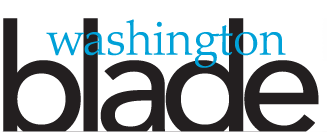Venezuelan activists flee to U.S. after death threats
Originally published on Washington Blade

By Michael K. Lavers
Two Venezuelan LGBT activists said death threats forced them to flee to the U.S.
Yonatan Matheus and Wendell Oviedo, co-founders of Venezuela Diversa, an LGBT advocacy group in the South American country, said in a press release their organization released earlier this month that they fled to New York in April.
They said they began to face harassment after they urged authorities to investigate the 2011 murders of two trans women on Avenida Libertador, a main thoroughfare in the Venezuelan capital of Caracas.
Prostitution is commonplace along Avenida Libertador.
Many of the trans sex workers who work along the Caracas thoroughfare are victims of violence and human trafficking. Criminal gangs also extort money from them.
Activists harassed after returning from D.C.
Matheus and Oviedo said a group of armed men in June 2014 took their cell phones and threatened to kill them if they did not stop speaking out against “the situation of trans sex workers” on Avenida Libertador.
Matheus claims “unknown individuals” in March 2015 accosted and photographed him at Caracas’ international airport after he returned from D.C. where he had spoken at an Inter-American Commission on Human Rights hearing on Venezuela’s LGBT rights record.
“The individuals who followed him (Matheus) had full access to the airport’s restricted areas as they did to public areas,” said the press release that Venezuela Diversa released.
Matheus and Oviedo allege they were “once again harassed, accosted and photographed without their consent” in October 2015 while they were leaving the same airport. The two men had just returned to Venezuela after participating in another Inter-American Commission on Human Rights hearing in D.C.
“We have sufficient reasons to believe that those responsible for the death threats come from the criminal groups that dominate the sexual and economic exploitation of trans women,” Matheus told the Washington Blade on Monday from New York.
Matheus told the Blade these groups include common criminals, trans women and police officers.
He and Oviedo allege that Venezuelan authorities have subjected them to harassment, arbitrary detentions and physical violence.
Matheus said they have also faced “smear campaigns, harassment and political persecution” from members of President Nicolás Maduro’s political party and the government’s Sexual Diversity Council.
Matheus told the Blade that he and Oviedo have begun the process of seeking asylum in the U.S. “because of the socio-political situation that exists in Venezuela and the lack of guarantees that would protect our life.”
Trans Venezuelans ‘often’ human trafficking victims
The State Department’s 2015 human rights report notes trans Venezuelans “often” become victims of human trafficking or engage in sex work because the government prevents them from obtaining identity documents that would allow them to access education, employment, housing and health care. The Venezuela Diversa press release notes the same criminal gangs that exploit trans sex workers in Caracas have begun to operate in Ciudad Bolívar, Mérida and other cities across the country.
A report from the U.N. Office on Drugs and Crime notes Venezuela has one of the world’s highest homicide rates. A deepening economic crisis has also caused growing political and social instability in the oil-rich South American country that borders Colombia, Brazil and Guyana.
Tamara Adrián, a member of Popular Will, a left-leaning opposition party that supports LGBT-specific issues, in December 2015 became the first openly trans person elected to the Venezuelan National Assembly.
Adrián told the Blade last week that she has known Matheus for “many years.”
“He tried to help the trans girls who do sex work on Avenida Libertador,” said Adrián, who noted Venezuelan authorities last week arrested a trans woman who allegedly trafficked trans women to Panama. “He has reported various acts of violence: Some from the police and others from the other girls who exploit those who engage in sex work.”
Neither the Venezuelan government nor the country’s embassy in D.C. responded to the Blade’s requests for comment.
